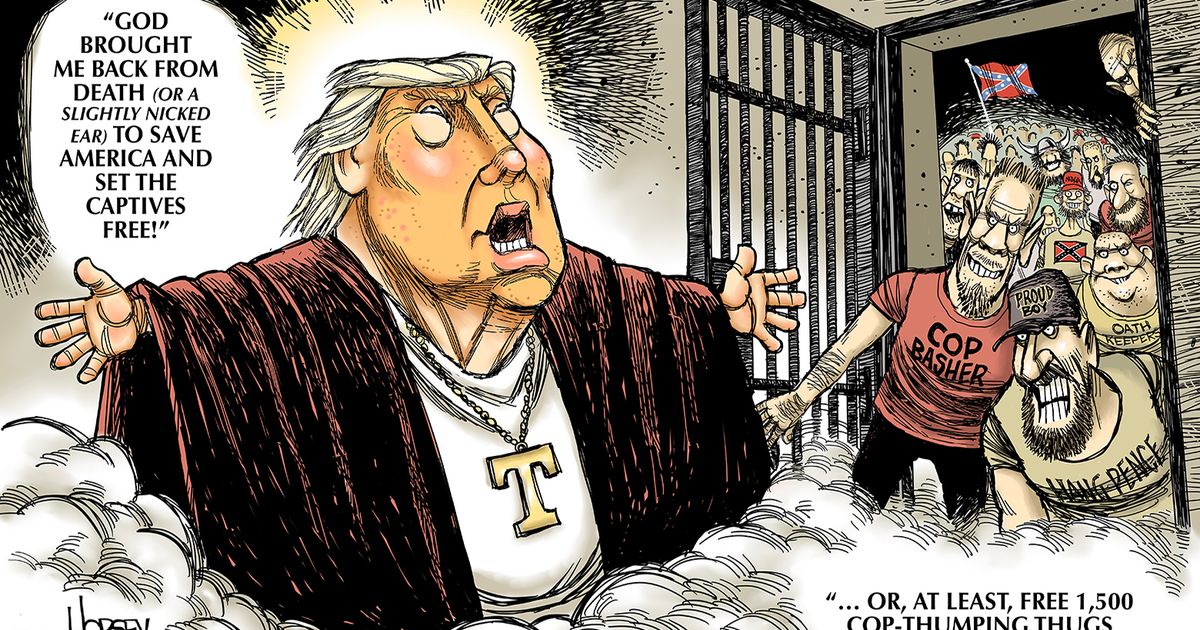Trump and in turn, his base, find themselves joyously awaiting a “golden era” in politics- in an advantageous position to execute their reformative agenda. At initial glance this statement is perhaps best attributed to Trump's persona as a businessman- his use of short marketable slogans incentivize his base by providing digestible and memorable policy positions. However this particular utterance is integral to Trump's rhetorical intention and effect in a multi-faceted way. As such, it plays a pivotal role in a variety of rhetorical applications:
Fantasy Theme Criticism:
This line serves as uniting symbol for the fantasy in which Trump is trying to engage his base. The implication here is that what this golden age entails is mutually agreed upon by him and his supporters, they are responsible in its ushering just as much as Trump is. Starting with this statement acts as a tantalizing way to initiate his narrative, one which details the transition from national suffering to a triumphant renewal. The phrase “golden age” evokes a grand, almost mythic sense of prosperity and serves as one of the main fantasies which Trump's rhetoric is outlining for his audience.
This line also functions within the fantasy-theme which is pivotal to the function of Trump's speech- that of a fallen people redeemed by a heroic figure. Trump essentially sets up a David and Goliath parallel where his people are the underdogs oppressed by a large institution which has undermined their rights and freedoms. In this story, he casts himself as the savior who, by taking office is putting an end to this tyrrany and putting his foot down on behalf of his people.
The applause which follows is not merely approval—it is ritual affirmation of the shared fantasy. The audiences internalizes a rhetorical vision that unites them emotionally and ideologically.
Ideological Criticism:
Framing his presidency as the beginning of a “golden age” reinforces Trump’s underlying nationalist ideology and capitalizes on populist themes. Trump asserts that under his leadership, America can reclaim a rightful, superior place in the world. Use of language like "golden age" constructs an ideological binary between a broken past and a utopian present, shaped entirely by Trump’s ascension. The use of “golden age” also taps into religious imagery, drawing from both nationalist and Christian overtones of promised lands and chosen leaders.
On Populist Rhetorical strategies and their efficacy in the context of political speakers and their agenda, Lacatus and Meibauer explicate that:
Populists claim to promote the interest of a virtuous ‘people’ by curbing a dangerous ‘other’, especially corrupt elites, which constitutes a threat to the people's sovereignty. Populists challenge the dominant order, give voice to the collective will and promise a new order that resonates with the longings of the ‘people’ (Moffitt Reference Moffitt2015; Oliver and Rahn Reference Oliver and Rahn2016; Rooduijn Reference Rooduijn2014). Populists use a transgressive rhetorical style that allows them to portray themselves as ‘authentic’ outsiders, and that is often direct, emotional and indelicate"
https://www.cambridge.org/core/journals/government-and-opposition/article/crisis-rhetoric-and-rightwing-populist-incumbency-an-analysis-of-donald-trumps-tweets-and-press-briefings/928DC40735BEEB1F62AE04ECBB98530C
